Why Singapore summit could be Donald Trump’s greatest moment
ANALYSIS: After threatening nuclear war, Kim Jong-Un is now meeting Donald Trump to try and secure world peace. This is what led to his incredible turnaround.

World
Don't miss out on the headlines from World. Followed categories will be added to My News.
NOT so long ago Kim Jong-un was labelled by an angry US President as a “maniac”, while Donald Trump was derided by the North Korean leader as “senile” and “insane”.
We look at the extraordinary turnaround that led to this historic summit.
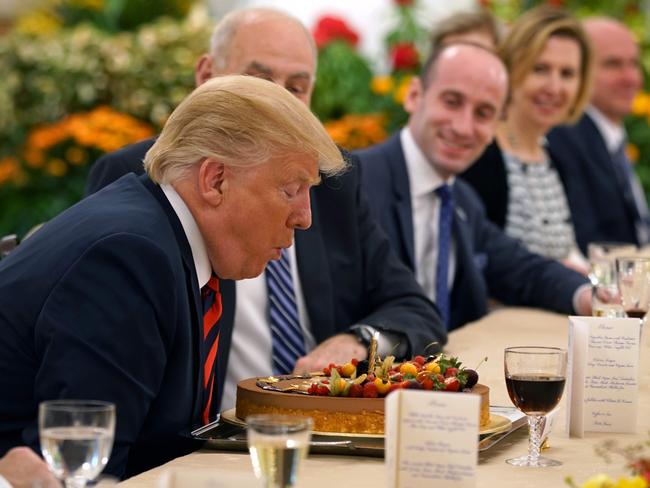
How did we get here, just months after Kim was threatening missile attacks on the US?
Donald Trump’s unorthodox diplomatic approach and Kim’s desire to improve impoverished North Korea’s economic state combined to bring the two unpredictable leaders together.
After months of insults and growing threats of a nuclear attack from Pyongyang, a thawing came in March at the White House, when South Korean President Moon Jae-in – who has steadfastly worked toward rapprochement since his election last year - passed on his northern neighbour’s desire for a meeting with President Trump, to which Trump agreed.
Negotiating with Kim was something Trump had canvassed during his election campaign, when he questioned why no other presidents had ever seemed to try.
Although the summit was cancelled briefly by Trump after the North Korean delegation stood up an advance US party in Singapore last month, it was back on a week later.

What does Trump want from the summit?
Trump wants “complete, permanent and verifiable denuclearisation” from North Korea, a process that would take years.
The likely model would be a multi-step process that would start with Pyongyang signing a legally binding agreement that would begin with freezing production and testing.
Kim would also need to agree to opening his country to weapons inspectors and to stop producing enriched uranium and plutonium. North Korea would also have to stop testing the intercontinental ballistic missiles, which in the past year were proved capable of reaching mainland USA.
Trump will also be making the case for a formal end to the Korean War.
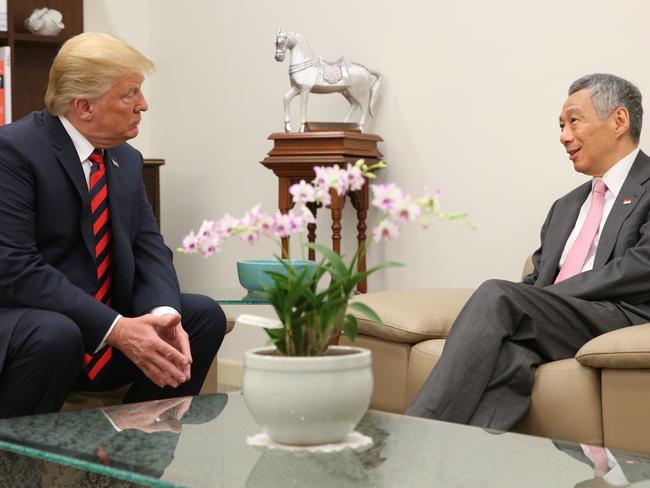
What does Kim want from it?
A big part of Kim’s desire for the summit was to legitimatise himself on the world stage, to succeed where his father and grandfather before him had failed.
Kim is a young leader of a dynastic communist state he inherited in 2011. He promised to transition from his father’s solely military focus to become a viable nuclear power and to grow its economy. Having succeeded in building his weapons capability, he has turned his focus to trying to lift North Korea out of poverty.
He wants an end to the “maximum pressure” from the US that has brought crippling international sanctions, which have for the first time included broad implementation of trading bans with China.
Victory for Kim would be maintaining his hold on power while normalising relations for North Korea with the US and its allies.
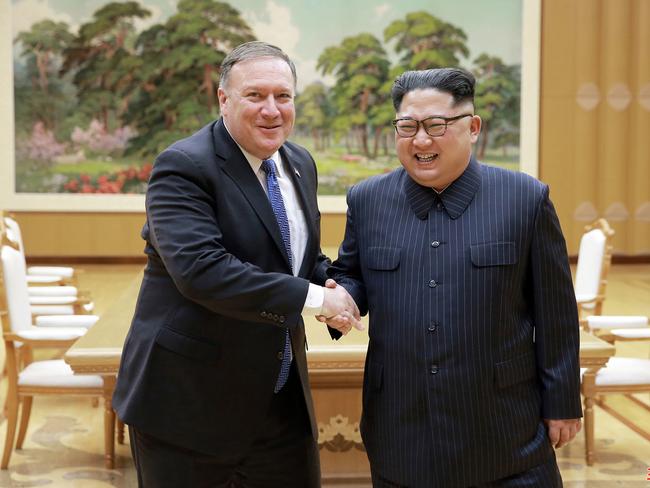
What are the risks of the summit for Trump?
With the two volatile personalities involved, there is a risk their talks could escalate quickly beyond normal diplomatic encounters. In many ways, just getting to the meeting with Kim having already indicated he will surrender his nukes is a win for Trump, given North Korea has bedevilled his predecessors for almost seven decades.
Trump’s approval rating is at its highest point since his 2016 election, so the biggest risk for him domestically is if Kim makes vague concessions and gives off the appearance of having played the US President for a fool.

How genuine is Kim?
It’s hard to say. As the unpredictable tyrant leader of a nuclear-capable hermit state, little is actually known about the way Kim thinks. The US delegation and Trump himself have reportedly been studying intelligence reports gathered from interviews with those who knew Kim as a teenager while he studied abroad, in an effort to drill down on his personality.
The reality is that Trump, who prides himself on his negotiation skills and his mastery of spectacle, would not have gotten to this point without knowing he will walk out of today’s meeting with something he can claim as a legacy-making victory.
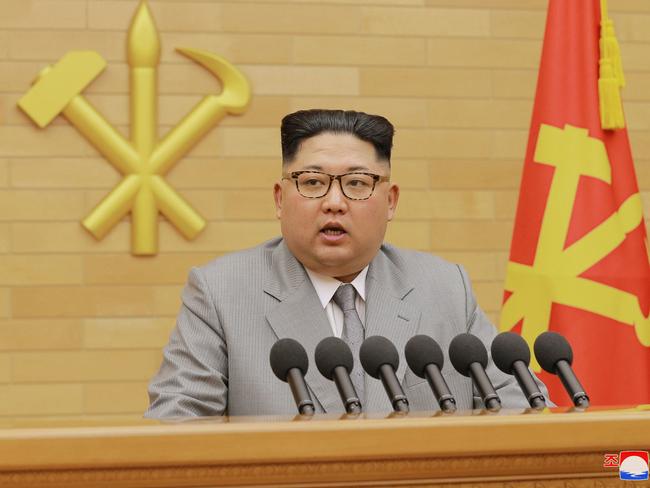
What could it mean to the North Korean people?
While North Korea is a communist state, most of its citizens have turned to trade in order to feed themselves. Opening up the resource-rich country to trade would potentially lift millions out of poverty.
But the biggest change would be for North Korea’s 25 millions citizens being exposed to the outside world, getting access to the internet and even being able to travel.

Could the summit produce peace between North and South Korea in the foreseeable future?
Yes — in no small part because of the work of South Korean President Moon Jae-in.
While full denuclearisation is the stated goal, the more likely short-term outcome could be a formal declaration to end the war between North and South Korea. The Korean War, which ran for three years from 1950, ended with an armistice but no formal peace treaty.
Last week, Mr Trump said “we could absolutely sign an agreement”.
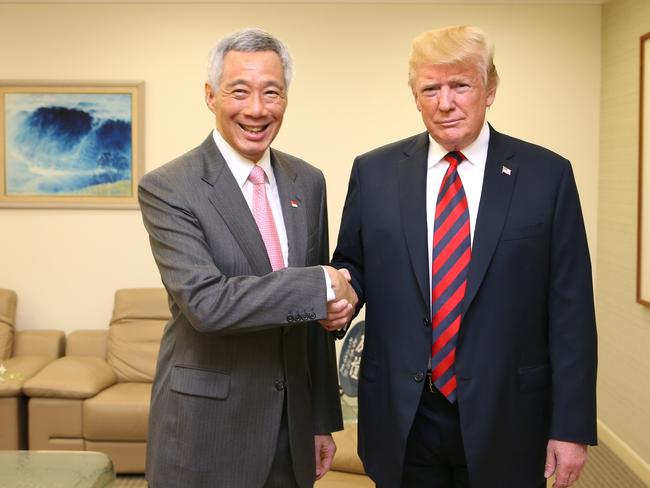
Is any agreement they make likely to stick?
This is the big question. North Korea has made similar gestures before and failed to honour them — so any promises Kim gives will be greeted warily and they will need to supply concrete proof of their adherence to any agreements.
Why have other US leaders failed on North Korea in the past?
Past peace talks didn’t proceed this far because North Korea had never really appeared genuine about agreeing to get rid of its nuclear weapons.
Trump’s “maximum pressure” policy has pushed them to the point where there is potential for good faith negotiations.

Is this a big bang moment or start of a lengthy process?
It’s certainly a big bang moment – a point to which the 2500 journalists who have descended upon Singapore from around the world could attest. A formal peace treaty between South and North Korea would be welcomed internationally. But it is also the start of a lengthy process, as any commitment from North Korea to denuclearisation will take years to implement and constant monitoring from international weapons inspectors.
Will this earn Trump the Nobel Peace prize?
If he makes concrete progress in bringing peace to Korea, this will be the greatest moment of Trump’s presidency to date. If he is credited with ending the nuclear threat, then he will certainly be in the running.


